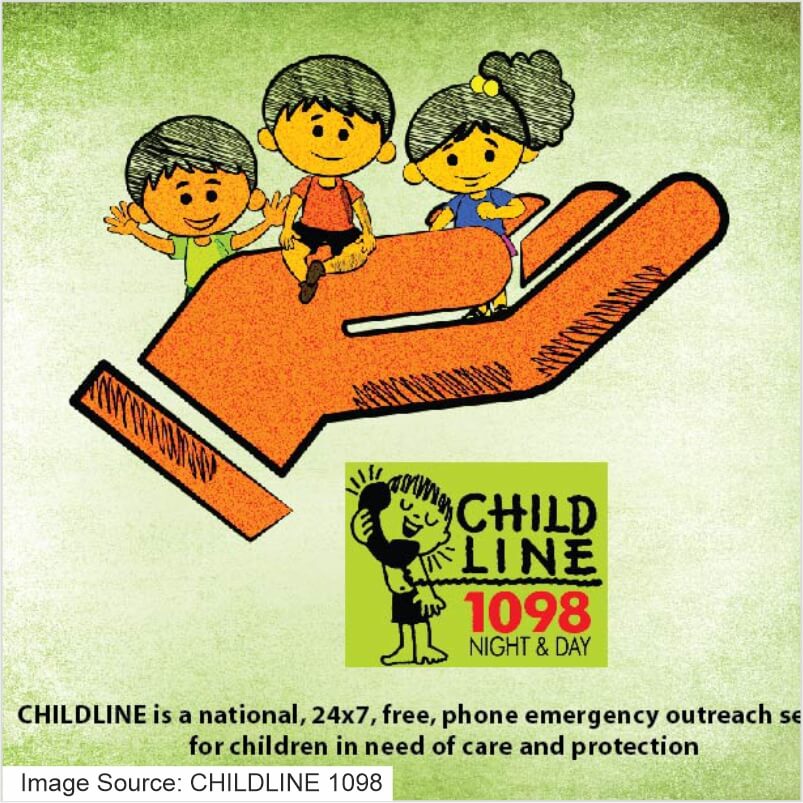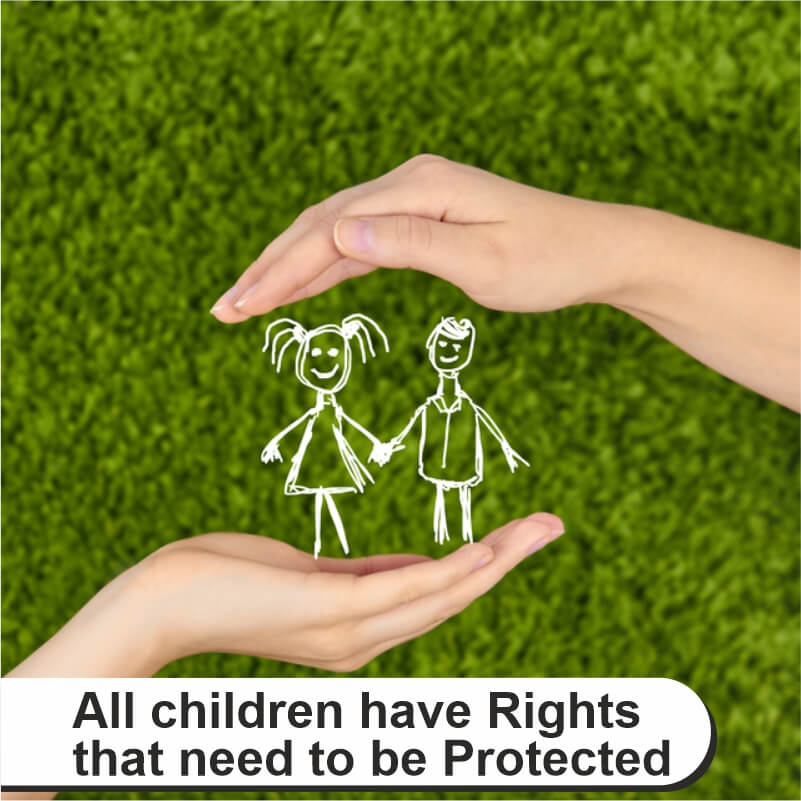According to international law, a ‘child’ means every human being below the age of 18 years. This is a universally accepted definition of a child and comes from the United Nations Convention on the Rights of the Child (UNCRC), an international legal instrument accepted and ratified by most countries.
India has always recognized the category of persons below the age of 18 years as a distinguished legal entity. That is precisely why people can vote or get a driving license or enter into legal contracts only when they attain the age of 18 years. The marriage of a girl below the age of 18 years and a boy below 21 years are restrained under the Child Marriage Restraint Act 1929. Moreover, after ratifying the UNCRC in 1992, India changed its law on juvenile justice to ensure that every person below the age of 18 years, who requires care and protection, is entitled to receive it from the State. There are, however, other laws that define a child differently and are yet to be brought in conformity with the UNCRC. But, as stated earlier, the legal understanding of the age of maturity is 18 for girls and 21 for boys. This means all persons in your village/town/city below the age of 18 years have to be treated as children and need your assistance and support.
Importance
Children make one of the most vulnerable sections of any society. They are dependent on other individuals for their universal development and protection. This usually makes them subject to various forms of abuse. Despite being dependent, children are individual beings and have rights. The importance of children’s rights is thus, multifold and needs to be taken seriously.Due to the multiple offenses committed against children every day, they need more than just basic human rights to protect them. Articles in the UNCRC cover all aspects of a child’s life and outline the civil, political, economic, social, and cultural rights that all children are entitled to. It also highlights the responsibility of adults and the government to ensure that all children can enjoy all their rights.
UNCRC & its Impact
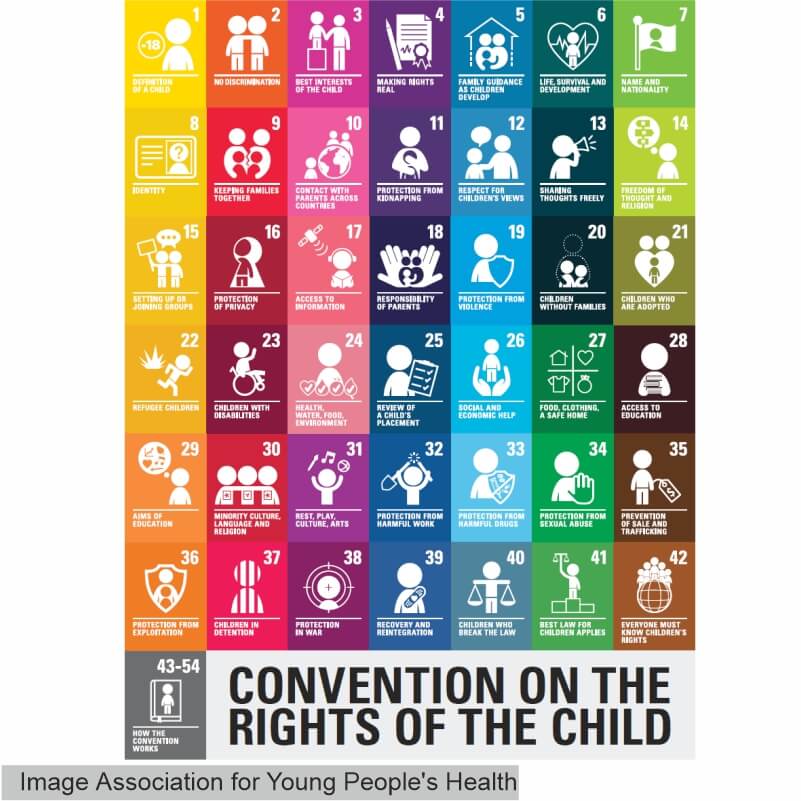
According to the UNCRC, every child has rights, whatever their ethnicity, gender, religion, language, abilities, or any other status.
The Convention must be seen as a whole: all the rights are linked and no right is more important than another.
Some Articles under UNCRC:
Right to Education
It recognizes education as a legal right for every child based on equal opportunity. Its Article 28 guarantees free compulsory primary education for all; progressive free secondary education that should, in any case, be available and accessible to all; and accessibility to higher education on the basis of capacity. It states the obligation of the State to take measures regarding school attendance and discipline. It encourages international cooperation in matters related to education, in particular elimination of ignorance and illiteracy and access to scientific and technical knowledge.Right to Life
Article 6 guarantees to all of the world's children the right to life, survival, and development. The right to life has long featured in international, regional, and domestic human rights instruments. It enriches the basic right to life and addresses a long-standing division in international human rights: that between civil and political rights, on the one hand, and economic, social, and cultural rights, on the other.Right to Freedom of Expression
Article 13 states that the child shall have the right to freedom of expression; this right shall include freedom to seek, receive and impart information and ideas of all kinds, regardless of frontiers, either orally, in writing, or print, in the form of art, or through any other media of the child's choice.Right to Privacy
Article 16 of the UNCRC makes it clear that children and young people have the right to privacy, just like adults do. No child shall be subjected to arbitrary or unlawful interference with his or her privacy, family, home, or correspondence, nor to unlawful attacks on his or her honor and reputation. The child has the right to the protection of the law against such interference or attacks.Right to Protection from Exploitation (Economic & Sexual)
Article 19 states that States Parties shall take all appropriate legislative, administrative, social, and educational measures to protect the child from all forms of physical or mental violence, injury or abuse, neglect or negligent treatment, maltreatment or exploitation, including sexual abuse, while in the care of parent(s), legal guardian(s) or any other person who has the care of the child.According to Article 32, States Parties recognize the right of the child to be protected from economic exploitation and from performing any work that is likely to be hazardous or to interfere with the child's education, or to be harmful to the child's health or physical, mental, spiritual, moral or social development.
Rights for Children with Disabilities
Article 23 of the UNCRC is about children and young people with a disability. All children and young people have the right to be safe and happy. When a child or young person has a disability, people should make sure it does not get in the way of this. They should do this no matter what that disability is.Right to have a proper house, food, and clothing
Article 27 of the UNCRC says that children and young people should be able to live in a way that helps them reach their full physical, mental, spiritual, moral, and social potential. For this to happen, they should have access to adequate food and housing. Good nourishment and nutrition are essential for children and young people to reach their full potential, while safe and well-maintained housing is necessary to ensure their development.
Child Protection Laws in the Indian Constitution
All people under the age of 18 are entitled to the standards and rights guaranteed by the laws that govern our country and the international legal instruments we have accepted by ratifying them.
The Constitution of India guarantees all children certain rights, which have been specially included for them. These include:
Right to Life & Right to Personal Liberty:
Article 21 states that “No person shall be deprived of his life or personal liberty except according to a procedure established by law.” Thus, article 21 secures two rights: The right to life, and the Right to personal liberty.
Right to Free & Compulsory Education:
Article 21 A in the Constitution of India states to provide free and compulsory education of all children in the age group of 6-14 years as a Fundamental Right in such a manner as the State may, by law, determine.
Prohibition of Employment of Children in Factories:
Article 24 states that “No child below the age of 14 years shall be employed to work in any factory or mine or engaged in any other hazardous employment.” However, the employment of children in non-hazardous work is allowed.
Article 39 (e) & (f):
Article 39(e) and (f) provides that the State shall, in particular, direct its policy towards securing to "ensure that the health and strength of tender age of children are not abused" and that "the children are given opportunities and facilities to develop in a healthy manner and conditions of freedom and dignity" and that the childhood and youth are protected against exploitation and moral and material abandonment.
Laws to protect Child Rights in India:
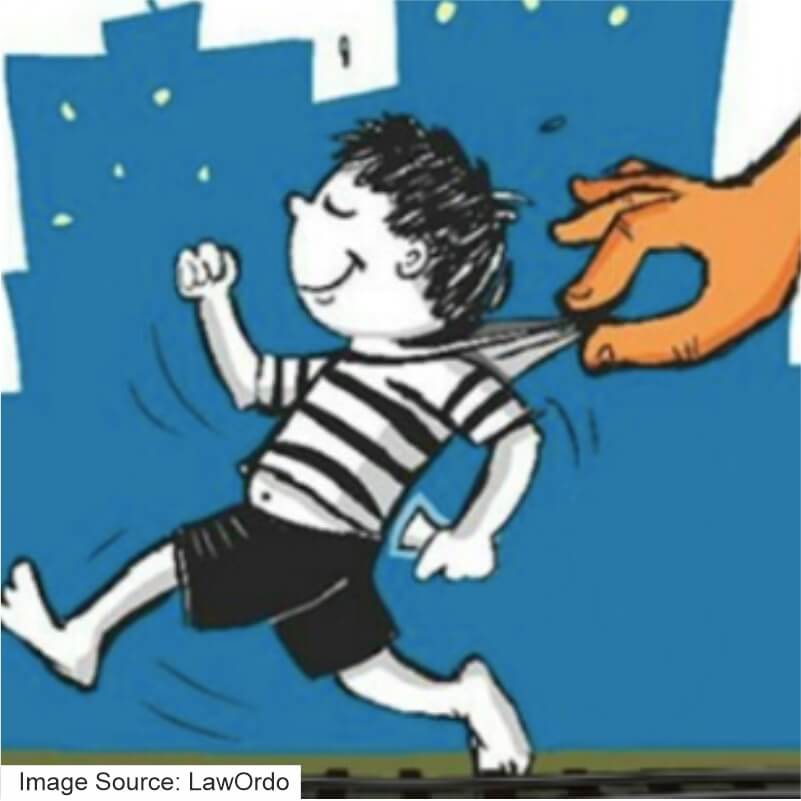
1) The Juvenile Justice (Care and Protection of Children) Act, 2015
The Juvenile Justice (Care and Protection of Children) Act, 2015 has come into force from January 15, 2016, and repeals the Juvenile Justice (Care and Protection of Children) Act, 2000. The Act seeks to achieve the objectives of the United Nations Convention on the Rights of Children as ratified by India on December 11, 1992. It specifies procedural safeguards in cases of children in conflict with the law. It seeks to address challenges in the existing Act such as delays in adoption processes, high pendency of cases, accountability of institutions, etc. The Act further seeks to address children in the 16-18 age group, in conflict with the law, as an increased incidence of crimes committed by them have been reported over the past few years.2) Child Marriage Prohibition Act:
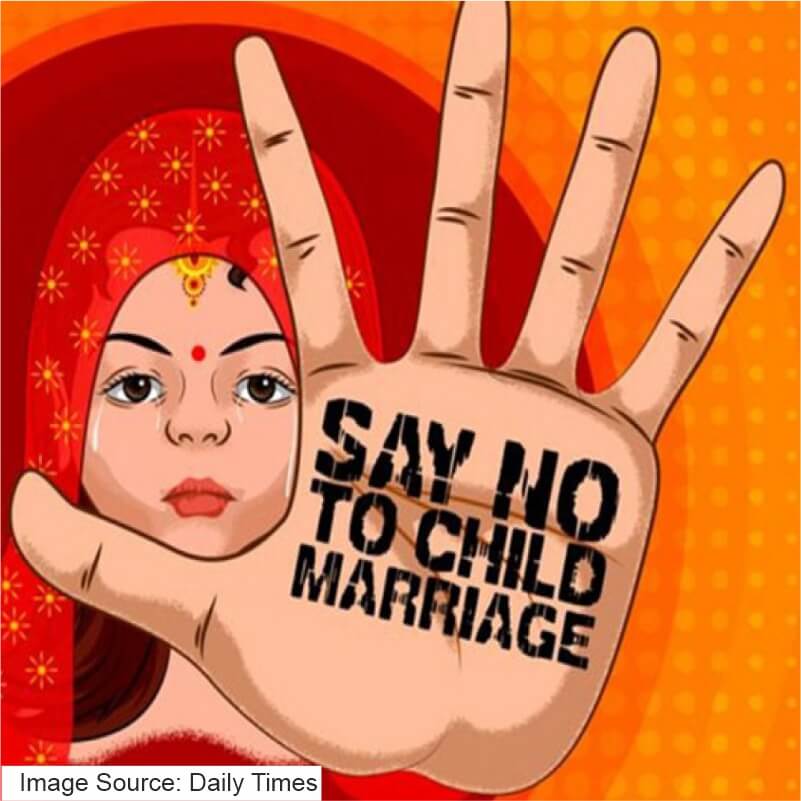
The object of the Act is to prohibit the solemnization of child marriage and connected and incidental matters. To ensure that child marriage is eradicated from within the society, the Government of India enacted the Prevention of Child Marriage Act 2006 by replacing the earlier legislation of the Child Marriage Restraint Act 1929. This new Act is armed with enabling provisions to prohibit child marriage, protect and provide relief to the victim and enhance punishment for those who abet, promote, or solemnize such marriage. This Act also calls appointment of Child Marriage Prohibition Officer for whole or a part of a State by the State government.
3) Protection of Children from Sexual Offences Act (POSCO)
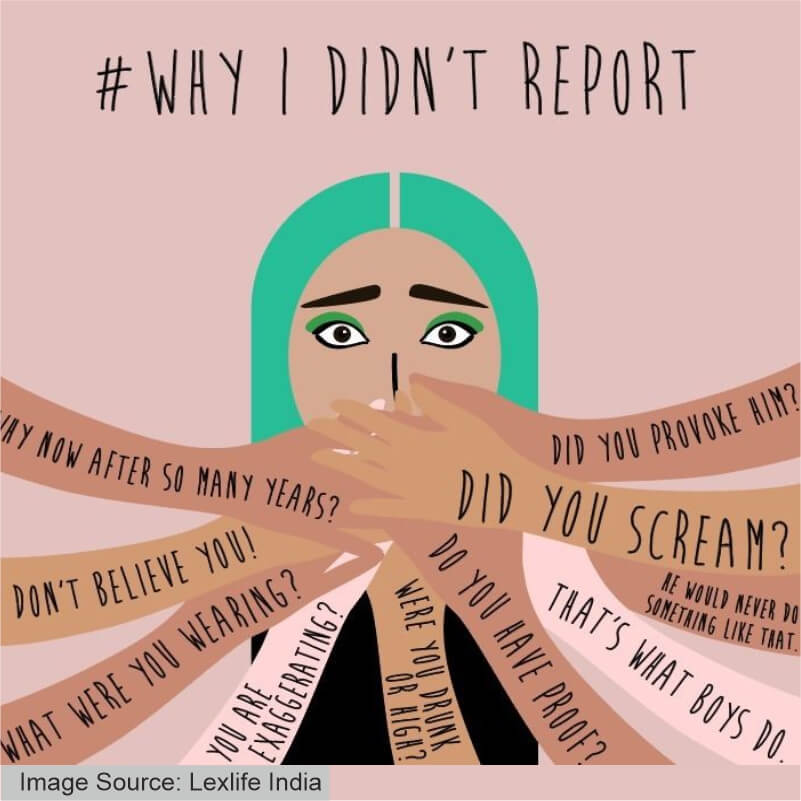
To effectively address the heinous crimes of sexual abuse and sexual exploitation of children through less ambiguous and more stringent legal provisions, the Ministry of Women and Child Development championed the introduction of the Protection of Children from Sexual Offences (POCSO) Act, 2012.
The Act has been enacted to protect children from offenses of sexual assault, sexual harassment, and pornography and provide for the establishment of Special Courts for the trial of such offenses and related matters and incidents.
The Act was amended in 2019, to make provisions for enhancement of punishments for various offenses to deter the perpetrators and ensure safety, security, and dignified childhood for a child.
4) Child Labor Prohibition and Regulation Act
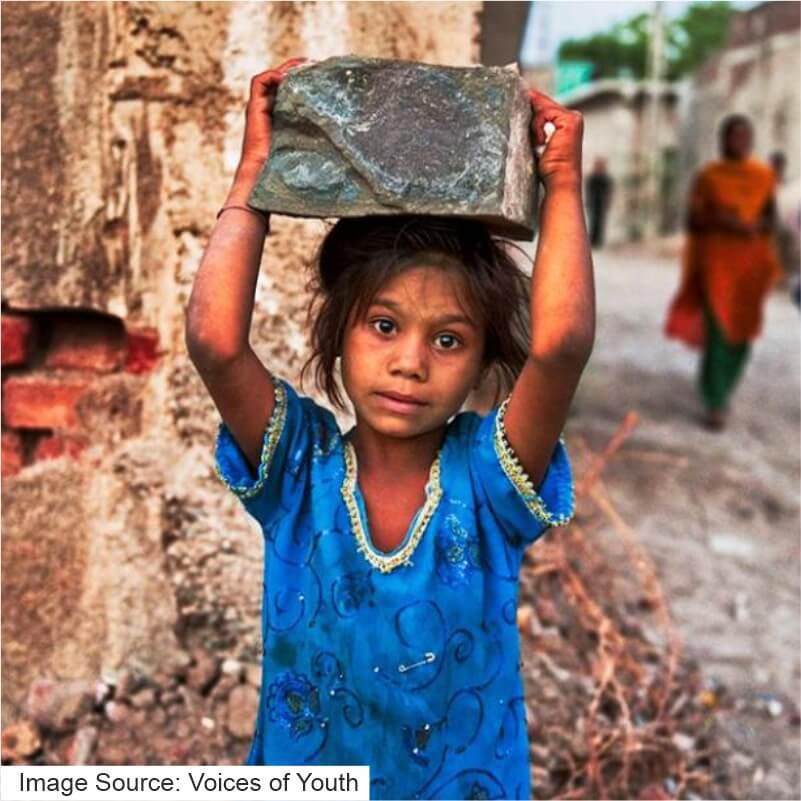
The government of India has notified the amendment in the Child Labour (Prohibition and Regulation) Central Rules after extensive consultation with the stakeholders. The Rules provide a broad and specific framework for prevention, prohibition, rescue, and rehabilitation of child and adolescent workers. It also clarifies issues related to helping in family and family enterprises and the definition of the family concerning children; specific provisions have been incorporated in rules. Further, it also provides for safeguards of artists who have been permitted to work under the Act, in terms of hours of work and working conditions. The rules provide for specific provisions incorporating duties and responsibilities of enforcement agencies to ensure effective implementation and compliance of the provisions of the Act.
What can one do to help a Child?
